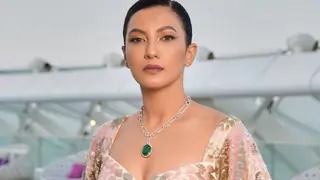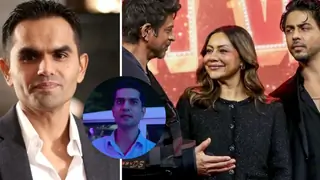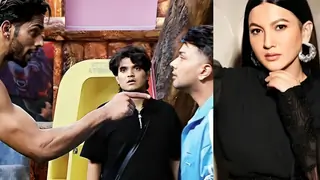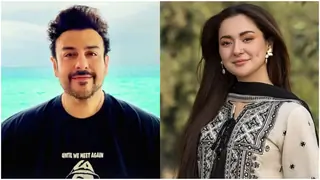Meghana,
An admirable and psychologically coherent analysis.That I differ from it on various points does not affect what I feel about it overall.
Others have pointed out that your title is misleading; I would agree with them. Jalal gave Jodha a choice, not a decision, but of course he changed the parameters of the second choice. Not to stay on with the status quo, but under different terms. So, Mynavati's was not a refusal of what Jalal was now proposing, and even if it was, in that would not take Jodha back, it was presented as a plea, complete with folded hands, which made Jalal feel very awkward and embarrassed.
I always knew this was what she would say, and she is brutally frank about it -
Jab beti parithyakta bankar aati hai, to hum rah bandh kar dete hain. What she tells Jodha in the court are her real reasons, not the sugar coating she puts on it while talking later to Hamida Banu. And who shall blame her? That is the code by which a Rajput girl in that era was taught to live, and this all the more so when she was a princess, and now a queen.
The CVs' treatment of the pre-marriage shenanigans by Jodha was very unrealistic for that age, and seemed like a concession to modern feminist sentiment more than anything else. It was the same with a lot of what followed in terms of Jodha's endless, acidulated confrontations with her
patidev. Now, at long last, like two slightly oblique lines intersecting far down their length, a dose of realism has come to Jodha Akbar.
I agree with your take that it is, above all, her ego that pushed Jodha to try and end it all.
I am not about to explore the ethics of suicide or suicide attempts, or to anguish over Jodha in her misery, for there are others enough to do that. Besides, the CVs have, for once, got it right. They have built the walls of the cul de sac high enough and narrow enough so that Jodha cannot even breathe.
For hers is a one track mind, and the track so far has been that she has the worst husband in the whole world. So she lashes out at him time and again, like a furious kitten out to draw blood. She was never one for introspection re: her own actions and their repercussions,
in a purely practical fashion, about whether a shift in her ways of thinking might help her. The escapism of suicide is the inevitable result of such a state of mind.
Nor I am sure if Jalal is, right now, anywhere near the soulmate phase. That will come, but it is a way off yet. How much of a way off depends on how many episodes are being planned, and how far into Akbar's 49 year long reign they plan to go.
For now,at the very end of the darbar scene, after his parting salutation to Mainavati, Jalal looks across at Jodha, who is wiping her tears. His expression is no longer angry, or even upset. It is puzzled and worried, with a tinge of sadness. Perhaps, if she could only read his face, Jodha would have realized that the husband she detests does feel for her.
Later, once again blindsided by the news of Jodha's disappearance, Jalal reacts at two levels. On the surface, he is bound to stick to the Mughal sultanate ki shaan ko barkarar rakhna routine, and so he does. Inside, especially after Ruqaiya fulfills her sole purpose in that scene - that of bringing up the suicide theory - he is really frightened, for this is a situation he had not anticipated. But still, it is characteristic of the man that he will not panic, but is doubly determined to find her and salvage the situation.
Why finding her is so important to him is another matter, but he has a ready explanation for public consumption.
I found all of the above refreshingly realistic. Firstly, contrary to the conviction of the romantics here, Jalal was quite ready to let Jodha go back to Amer. This was only natural; an emperor does not beg to be cared for by a wife who constantly proclaims how much she detests him. There IS something about her that pulls him, like a hidden magnet, and this has been so since the time he ventured on that risky trip to the heart of Amer just to catch a glimpse of her. But that does not mean that he cannot master that longing, the desire to make her care for him.
Secondly, while he tells himself, and others, that he will not let her die so that the pride of the Mughals will not be besmirched, the fear that lurks behind the determination in his eyes in the last shot tells its own tale. Rajat was tops in that one frame.
So, after the pool dunking, Jalal's rage after dragging Jodha out will be directly proportional to, first, the fear he felt, and then the relief he feels. Both will speak to his zehen, perhaps, and clarify for him what exactly this tiresome, obstreperous, infuriating wife of his means to him.
As for Jodha, if the Green Jodha can have a go at her again, she will realise that there is someone who not only cares whether she lives or dies, but is prepared to rescue her from herself.
My apologies for such a long response, and once again, it is an excellent post.
Shyamala


























24